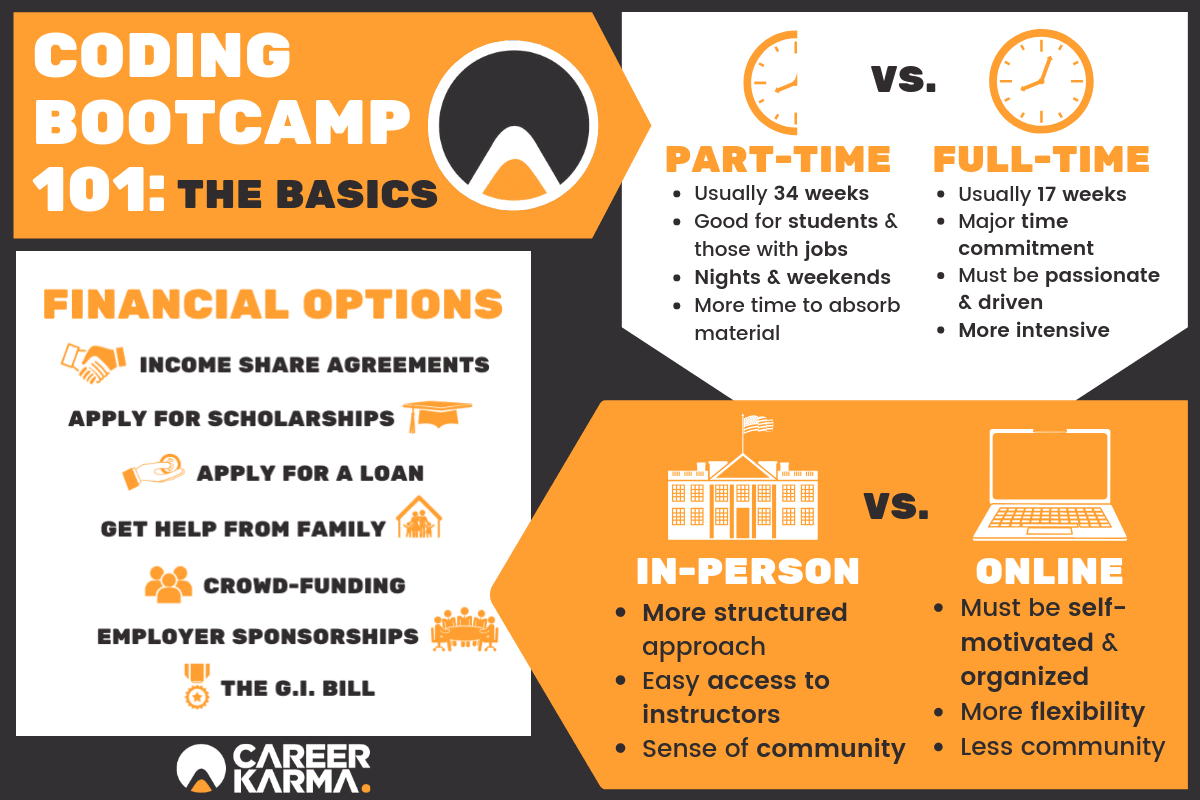Regulatory Landscape of Coding Bootcamps: Are Coding Bootcamps Licensed

The regulatory landscape for coding bootcamps is surprisingly varied and complex, lacking the uniform standardization seen in traditional higher education. This inconsistency stems from the relatively recent emergence of bootcamps as a significant player in skills training and the differing approaches governments take towards regulating vocational education. Understanding these variations is crucial for both aspiring students and bootcamp operators.
Variations in State and Country Regulations
Regulations governing coding bootcamps differ significantly across states and countries. Some jurisdictions maintain a relatively hands-off approach, allowing bootcamps to operate with minimal oversight. Others, particularly those with robust regulations for traditional educational institutions, are beginning to scrutinize the sector more closely, leading to stricter licensing and accreditation requirements. This lack of uniformity creates a patchwork of rules, making it difficult for prospective students to assess the quality and legitimacy of various bootcamps. Furthermore, the legal definitions of “educational institution” often fail to explicitly encompass coding bootcamps, leading to regulatory ambiguity.
Strict Licensing Requirements and Their Application to Coding Bootcamps
States like California, with its Bureau for Private Postsecondary Education (BPPE), have established stringent licensing requirements for private educational institutions. These requirements typically involve background checks on instructors, financial responsibility standards, and detailed curriculum disclosures. While the BPPE’s purview technically extends to institutions offering vocational training, the application of these rules to coding bootcamps has been inconsistent. Some bootcamps operating in California have successfully navigated these regulations, obtaining licenses, while others operate in a gray area, potentially exposing themselves to legal challenges. Similarly, New York State’s Department of Education also regulates private career schools, and their regulations may or may not apply to a coding bootcamp depending on the specifics of its program and marketing.
Regulatory Frameworks in Different Countries
Comparing the regulatory frameworks of three countries highlights the global variation. In the United States, the regulatory landscape is decentralized, with state-level control predominating. This leads to the inconsistencies described above. In contrast, the United Kingdom has a more centralized system, with the Office for Students (OfS) overseeing higher education, including some vocational training programs. However, the OfS’s reach may not fully encompass all coding bootcamps, depending on their program structure and length. Finally, in Canada, provincial governments generally regulate private career colleges, and the specific requirements vary considerably by province. The inclusion or exclusion of coding bootcamps within these regulatory frameworks often depends on factors such as program length, credential offered, and marketing claims.
Legal Implications for Unlicensed Bootcamps
Operating an unlicensed coding bootcamp in areas with stringent regulations carries significant legal risks. These risks include hefty fines, cease-and-desist orders, lawsuits from defrauded students, and potential criminal charges, depending on the jurisdiction and the nature of the violations. The penalties can be severe, potentially forcing the closure of the bootcamp and resulting in substantial financial losses for the operators. Furthermore, a negative reputation stemming from legal action can severely damage the bootcamp’s credibility and future prospects.
Hypothetical Scenario: Consequences of Operating an Unlicensed Bootcamp
Imagine a coding bootcamp, “CodeCrafters,” operating in California without the necessary BPPE license. They aggressively market their program, promising guaranteed job placement. After several students fail to secure jobs despite completing the program, they file a class-action lawsuit against CodeCrafters, alleging misrepresentation and breach of contract. The BPPE investigates, discovers CodeCrafters’ unlicensed operation, and levies substantial fines. CodeCrafters faces significant legal costs, reputational damage, and potential criminal charges, ultimately leading to the closure of the business and considerable financial ruin for its founders.
Consumer Protection and Unlicensed Bootcamps

Attending an unlicensed coding bootcamp presents significant financial and career risks for students. The lack of regulatory oversight leaves students vulnerable to various forms of exploitation and potential misrepresentation regarding curriculum, job placement assistance, and overall educational quality. Understanding these risks and the available consumer protections is crucial for prospective students.
The absence of licensing often correlates with a higher chance of encountering unethical practices. Unlicensed bootcamps may lack the accountability mechanisms inherent in licensed institutions, leading to potential issues such as inflated job placement statistics, inadequate instruction, or even outright scams. This lack of accountability creates a significant power imbalance between the bootcamp and the student, leaving the student with limited recourse if problems arise.
Potential Risks for Students Attending Unlicensed Bootcamps, Are coding bootcamps licensed
Students enrolling in unlicensed coding bootcamps face several substantial risks. These include receiving a substandard education that fails to adequately prepare them for industry jobs, experiencing misleading marketing practices that overpromise career outcomes, and encountering difficulties in resolving disputes due to the absence of a regulatory body to oversee the bootcamp’s operations. Furthermore, the lack of accreditation can hinder future educational or career advancement opportunities. Financial losses are also a significant risk, as students may invest considerable sums of money in tuition without receiving the promised return on investment.
Applicable Consumer Protection Laws
Several consumer protection laws may offer recourse to students facing disputes with unlicensed bootcamps. These laws vary by jurisdiction but often include provisions against deceptive advertising, breach of contract, and unfair business practices. For example, state-level consumer protection acts often prohibit false advertising and misleading representations, allowing students to pursue legal action if the bootcamp’s marketing materials misrepresent its curriculum, instructors, or job placement success rate. Similarly, contract law can be invoked if the bootcamp fails to fulfill its contractual obligations, such as providing the promised instruction or job placement assistance.
Resources for Researching Bootcamp Legitimacy
Several resources can help students research the legitimacy of coding bootcamps. Independent reviews and ratings websites, such as Course Report or SwitchUp, often provide student feedback and insights into the quality of various bootcamps. Checking the Better Business Bureau (BBB) for complaints filed against a specific bootcamp can also reveal potential issues. Finally, contacting alumni of the bootcamp directly can provide valuable firsthand accounts of their experiences. It is always advisable to conduct thorough due diligence before committing to a bootcamp.
Assessing a Bootcamp’s Credibility Beyond Licensing
While licensing is a significant indicator of credibility, several other factors can help assess a bootcamp’s trustworthiness. These include examining the bootcamp’s curriculum to ensure it aligns with industry standards, reviewing instructor qualifications and experience, researching student testimonials and reviews from multiple sources, and verifying job placement statistics independently. Investigating the bootcamp’s physical location and infrastructure can also provide valuable insights into its stability and commitment to providing quality education. Transparency in the bootcamp’s policies and pricing structure is another crucial factor to consider.
Red Flags Indicating an Unreliable Bootcamp
Several red flags can signal a potentially unreliable coding bootcamp. These include overly aggressive sales tactics, unrealistic job placement guarantees, instructors with insufficient experience, vague or unclear curriculum descriptions, an absence of readily available student testimonials, significant negative reviews online, and a lack of transparency about pricing and financing options. A bootcamp that avoids providing details about its accreditation or licensing should also raise serious concerns. A persistent inability to answer basic questions about the program should be seen as a major warning sign.


Tim Redaksi